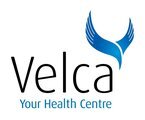Eating For Two – Nutrition during Pregnancy
We all know about the importance of eating a healthy diet so that we can look and feel our best – but what about when we’re no longer just eating for ourselves? Good nutrition during pregnancy is vital for both your baby’s health and your own.
One of the most important things to remember is that eating for two does not just relate to eating more food. Your growing baby does not have the energy requirements of another adult, but does have high nutrient requirements as they are growing and developing rapidly. So with that in mind, your focus should be on choosing foods that are high in nutrients (nutrient dense) but not necessarily high in calories.
What are nutrient dense foods?
These are foods that contain lots of nutrients compared to their calorie content. They are the opposite of a lot of calorie dense foods which are high in calories but lacking in nutrients. Nutrient dense foods include fruit and vegetables, lean meat and fish, natural dairy products, nuts and eggs. These foods all contain important nutrients such as vitamins and minerals, good quality proteins and healthy fats. Consuming plenty of these foods during pregnancy will help ensure your growing baby gets all the nutrients he or she requires, while also ensuring your own body is not depleted of nutrients.
Weight gain during pregnancy:
Healthy weight gain during pregnancy ranges from 11-15kg for most women. While this level of weight gain contributes to a healthy pregnancy, gaining too much weight is not healthy for you or your baby. Gaining too much weight increases your risk of complications and also makes the weight harder to lose after birth. On the other hand, not gaining enough weight during pregnancy is not healthy either. It can increase your risk for premature labour and giving birth to a low birth weight baby. To help ensure you gain a healthy amount of weight during pregnancy, try to limit your consumption of calorie dense foods such as bakery products, deep fried foods and pre-packaged foods such as chips and biscuits and choose nutrient dense foods instead.
What foods shouldn’t I eat?
During pregnancy there are some foods you should avoid because of the risk they pose in terms of Listeria contamination or because they contain things that may be harmful for your growing baby.
High risk foods:
Processed and deli meats e.g. salami
Uncooked meats
Foods that have been sitting in their prepared, cooked state for long periods e.g. pre-cooked chicken and longstanding leftovers
Pate
Raw fish including sushi
Poor quality shellfish
Soft cheese e.g. camembert, brie
Foods with raw or soft eggs such as homemade ice cream, mayonnaise and mousse.
There are also certain substances you should avoid during pregnancy. These include Caffeine e.g. from tea, coffee, energy drinks and coca cola. Caffeine can affect your baby’s growth, prevent oxygen utilisation and deplete your body of B vitamins. Large amounts of coffee have been associated with miscarriage.
You should also avoid refined sugar and trans-fatty acids. Trans-fats are most commonly found in deep fried foods or products, foods cooked at very high temperatures and foods containing modified fats – listed on the label as hydrogenated or partially hydrogenated fats e.g. crackers and store bought bakery style products. They interfere with our body’s ability to absorb and use good fats which are essential for brain function.
Limiting intake of fish that may be contaminated with high levels of mercury such as albacore tuna is also recommended. Although these are great sources of healthy fats, their mercury content can be toxic for a developing baby. It is best to buy fresh fish from the local markets and take a high quality supplement containing DHA and EPA.
Supplementation during pregnancy:
Besides a good quality Omega 3 supplement (containing EPA and DHA), it also advised you take a folic acid supplement (ideally starting six months prior to conception). A good quality multivitamin supplement is recommended to compliment a healthy diet. Depending on your nutrient levels prior to pregnancy you may need to take other supplements such as iron or vitamin B12, but your doctor should find this out from your antenatal blood tests.
Exercise during pregnancy:
Exercising during pregnancy helps with healthy weight gain, healthy pregnancy and labour. However, pregnancy is not the time to embark on a new intense fitness regime. It’s not recommended to increase your activity levels significantly during pregnancy especially if you aren’t usually active. Activities like walking, swimming and yoga are great. You will need to taper your exercise levels as your pregnancy progresses and remember to listen to your body – if you don’t feel up to exercising or find particular exercises difficult then don’t push yourself. Also, remember to keep hydrated by drinking plenty of water both during and after exercise especially when the weather is hot.
